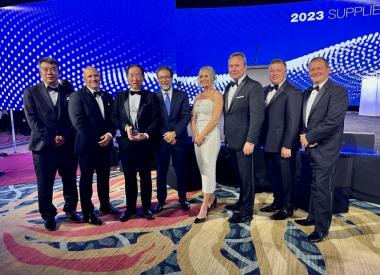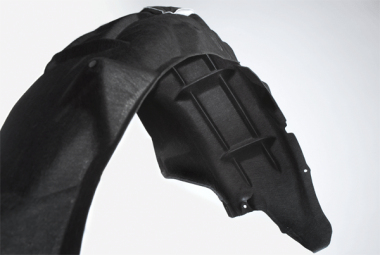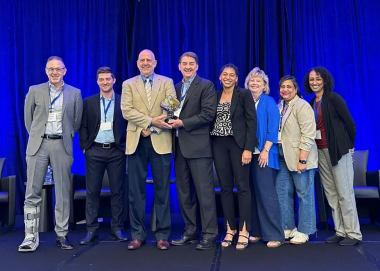Carbios: Polyester recycling with new textile preparation line
Carbios inaugurated its textile preparation line at its demonstration plant in Clermont-Ferrand, in the presence of Mr. Lescure, French Minister for Industry. To streamline the textile preparation phase, which is currently carried out by hand or on several lines, Carbios has developed a fully integrated and automated line that transforms textile waste from used garments or cutting scraps into raw material suitable for depolymerization with its enzymatic biorecycling process. This patented line integrates all preparation stages (shredding and extraction of hard points such as buttons or fasteners), and provides Carbios with a high-performance, scalable development tool. The platform will help validate the biorecycling technology for textiles at demonstration plant scale (by 2024), and provides Carbios with expertise in working with collection and sorting operators to specify the quality of textiles and the preparation steps needed to make them suitable for enzymatic recycling. This expertise will also be invaluable to brands in the eco-design of their products.
Current collection, sorting and preparation infrastructures limit the amount of textile waste available for “fiber-to-fiber” recycling. Collection rates average around 15-25% worldwide[1], and much of the waste collected is exported to Africa, Asia or Latin America for sorting.
Moreover, textiles are highly complex materials, with yarns of different composition (or nature) that are difficult, if not impossible, to physically separate. However, the highly selective enzyme developed by Carbios can specifically depolymerize the PET (polyester) present in textile material.
At present, textiles are sorted and prepared mainly by hand, with low yields, particularly for disruptors to recycling processes such as “hard points” (zips, buttons, etc.). To optimize this crucial phase, Carbios is contributing a textile preparation solution to accelerate the development of biorecycling in the textile industry. Enzymatic recycling, or biorecycling, therefore contributes to the construction of a textile recycling chain and the acceleration of textile circularity, also enabling brands to do away with used bottles.
[1] Ellen MacArthur Foundation, 2017
Carbios






























